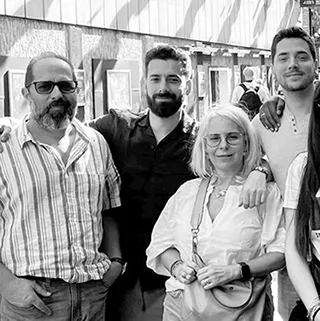-
Contact usthrough our contact page
#ExpatLife
Support for Belgian companies in Cuba
Jean-Serge was born in Brussels to a Belgian mother and Portuguese father. He studied in Belgium and Portugal. In 1997, he settled in Cuba. After some ups and downs in his own import-export business, he decided to change career in 2000. He became the local representative for Belgium's trade and export activities and its regional agencies.
My job is to facilitate contacts between Belgian companies and Cuban institutions.
Belgian trade representation
I represent Belgium in Cuba. I work for hub.brussels (New window) (Brusselse Agentschap voor Bedrijfsondersteuning), AWEX (New window) (Agence wallonne à l'Exportation et aux Investissements étrangers) and FIT (New window) (Flanders Investment & Trade).
‘I also coordinate Belgian trade missions under the patronage of the royal family. I have a clear task: to facilitate contacts between Belgian companies and Cuban institutions,’ Jean-Serge sums up.
My job involves a variety of activities. Generally, I first contact the Belgian company.
‘The company informs me about the product or service it would like to launch on the Cuban market,’ he explains. ‘I then analyse the possibilities and draw up a list of Cuban contacts that is as accurate as possible. I also point out the risks associated with the local economy.’ These risks are linked to bureaucracy and the US trade embargo, which is still in force.
As in all Latin American countries, personal contact is key. ‘It is very important for business people to meet! Cubans rarely come to Belgium. Belgian entrepreneurs are usually required to visit their Cuban partners in Cuba.’ These meetings take the form of individual missions focused on a specific company or collective missions bringing together several Belgian companies. Depending on the sector, the programme includes contact days, company visits or trade fair visits. Further support depends on the relevance of the contacts made.
‘We are not looking for quick wins. Belgians are no opportunists. We prefer long-term relationships with stable companies that create added value,’ he emphasises. The administrative, accounting, legal and personnel costs are therefore high.
Highs and lows in Cuba

Jean-Serge has built his professional career in Cuba. His wife has taken dual citizenship and their two adult children live in London and the United States. ‘When you're raising children, you get the impression that they're not listening to you, but often they follow your example,’ says Jean-Serge with a smile.
The couple enjoys Cuba's subtropical climate. Temperatures are very stable and pleasant, with a dry season from November to May and a humid season.
The mood among the population is gloomy. “Cubans used to be happier and more forward-looking. Today, they seem to have lost some of their hope due to the major economic crisis. Social cohesion is deteriorating as a result of the authoritarian government, which is struggling to open up to the world. Many have emigrated to the United States or elsewhere...”
Even Cuban music, which Jean-Serge loves so much, seems to have been affected. There are fewer concerts and performances. The same trend can be observed in exhibitions and biennials, which Jean-Serge is passionate about. ‘Culture is still present, but not as it used to be, mainly due to a lack of funds.’
A classic on wheels
He cherishes the charming anecdotes from his work. Like the one about the visit of Louis Michel, Foreign Minister in 2001. When the cabinet informed him of the minister's fondness for motorcycles, Jean-Serge did his utmost to find a Harley Davidson built before 1959.
Louis Michel enthusiastically rode around the island during his short trip, much to the delight of the Belgian press in attendance. ‘The Cubans loved it. At a time of tense relations between Cuba and the European Union, it conveyed a hospitable and romantic image of the island. An image that went around the world. And that was partly thanks to me,’ laughs Jean-Serge.
And while we're on the subject of two-wheelers, we mustn't forget the prestigious four-wheelers from before the 1959 revolution. ‘In addition to the many Russian cars that were nationalised after the revolution (including the means of transport), there are also the old American cars. Today, they adorn postcards. They are privately owned and maintained with a lot of love and ingenuity, and are registered from generation to generation. They help shape the image of the island.‘
Once Cuba, always Cuba?
Jean-Serge still has some contacts in Belgium. He returns two or three times a year to do his work and visit his family. A move back to Belgium seems unlikely. ‘Many colleagues decide to stay in their last expat country or move to another country in the region. As life in Cuba is difficult, I will probably stay in the region.
Or return to Portugal? I haven't made a final decision yet, as I will remain in my position for a few more years.'
He also compliments the progress made by the OSS. 'Over time, you have simplified our considerable administrative workload, saving us valuable time. Juggling forms, photocopies and translations is now a thing of the past. For several years now, the OSS has been offering a very practical online system for the reimbursement of medical expenses.
Would you like to share your travel experiences?
Are you an expat or do you know someone with an inspiring experience abroad? Please don't hesitate to contact us at overseas-expat@onssrszlss.fgov.be. And who knows, you might inspire future expats with your story.